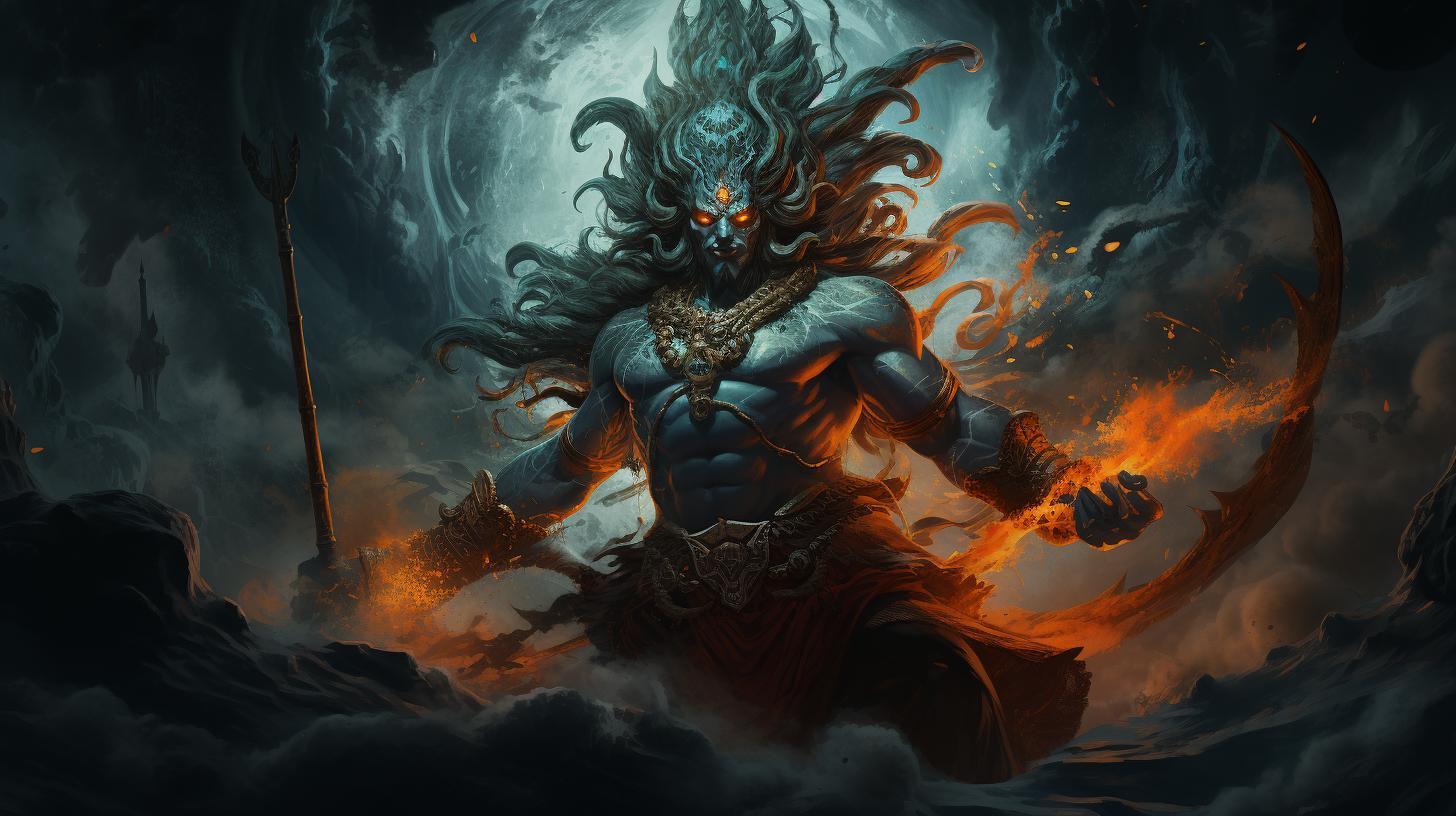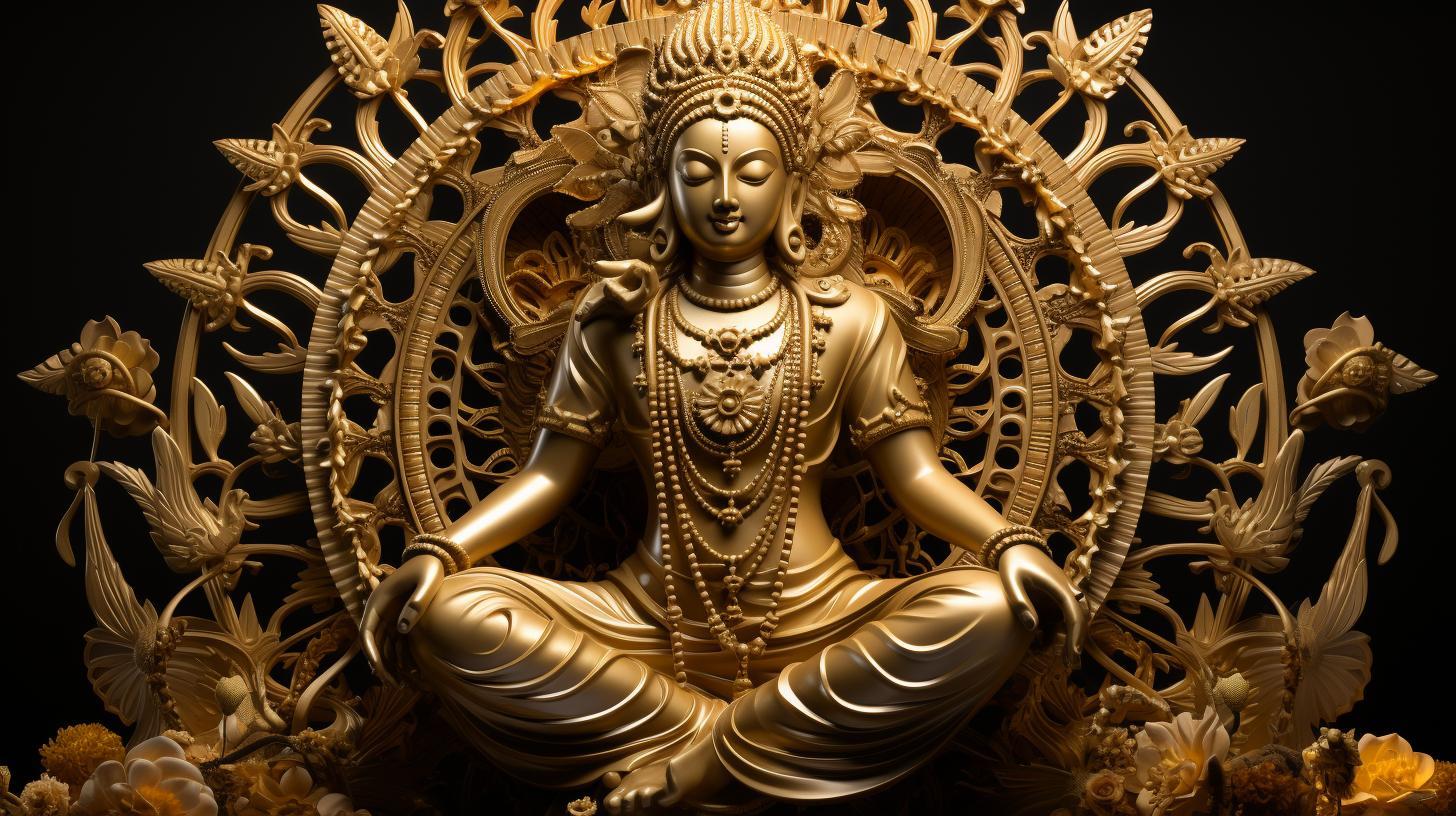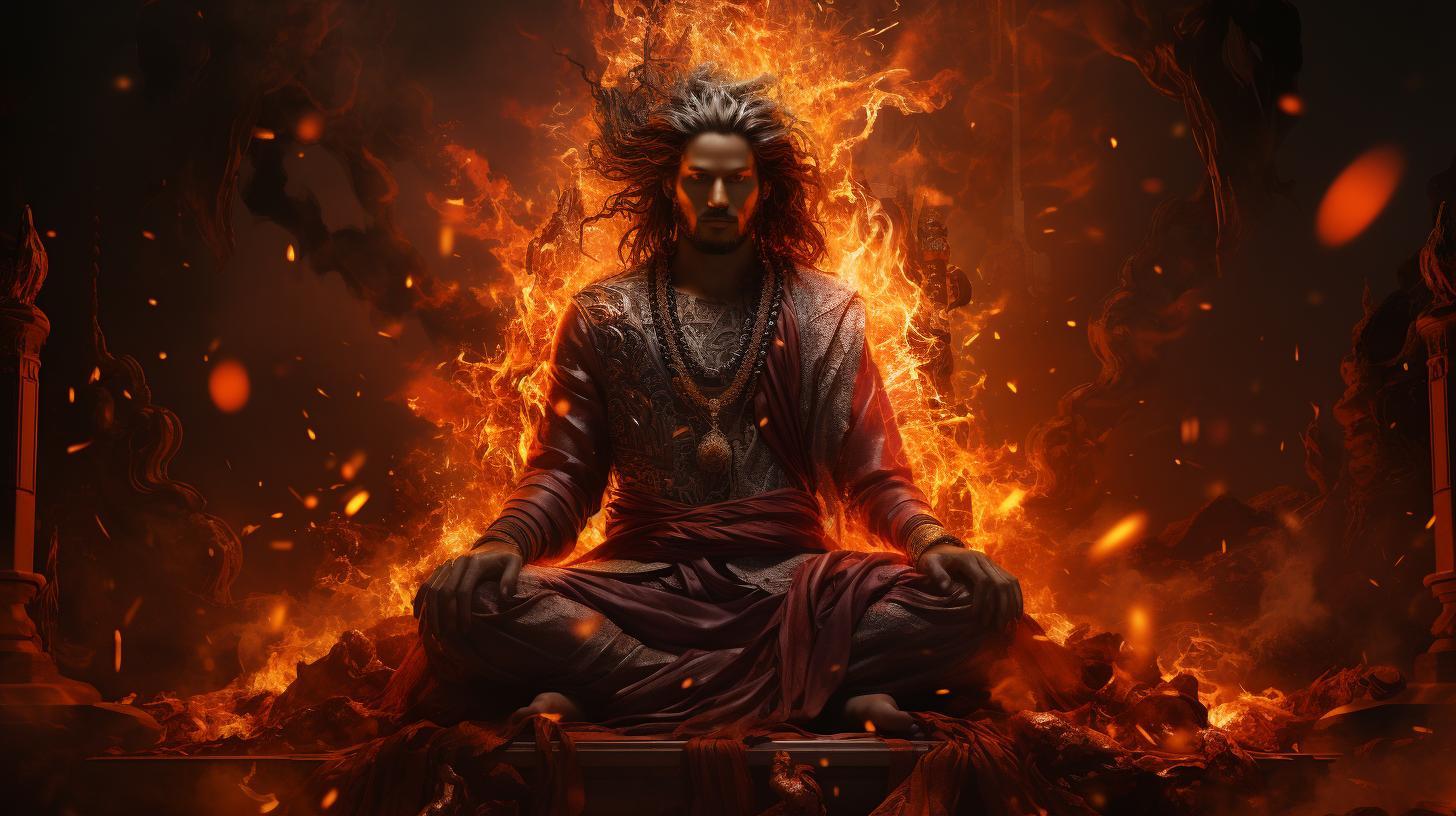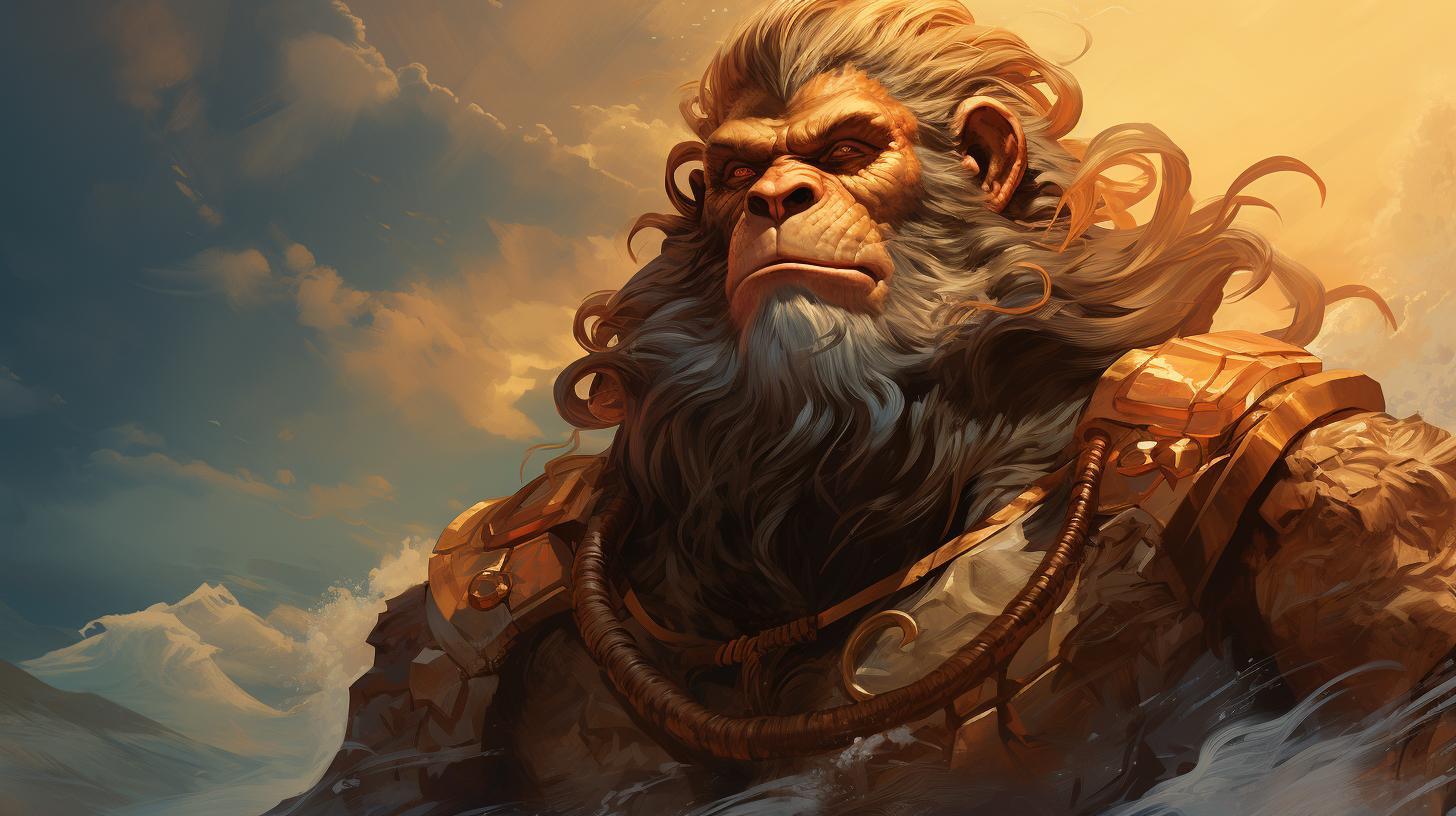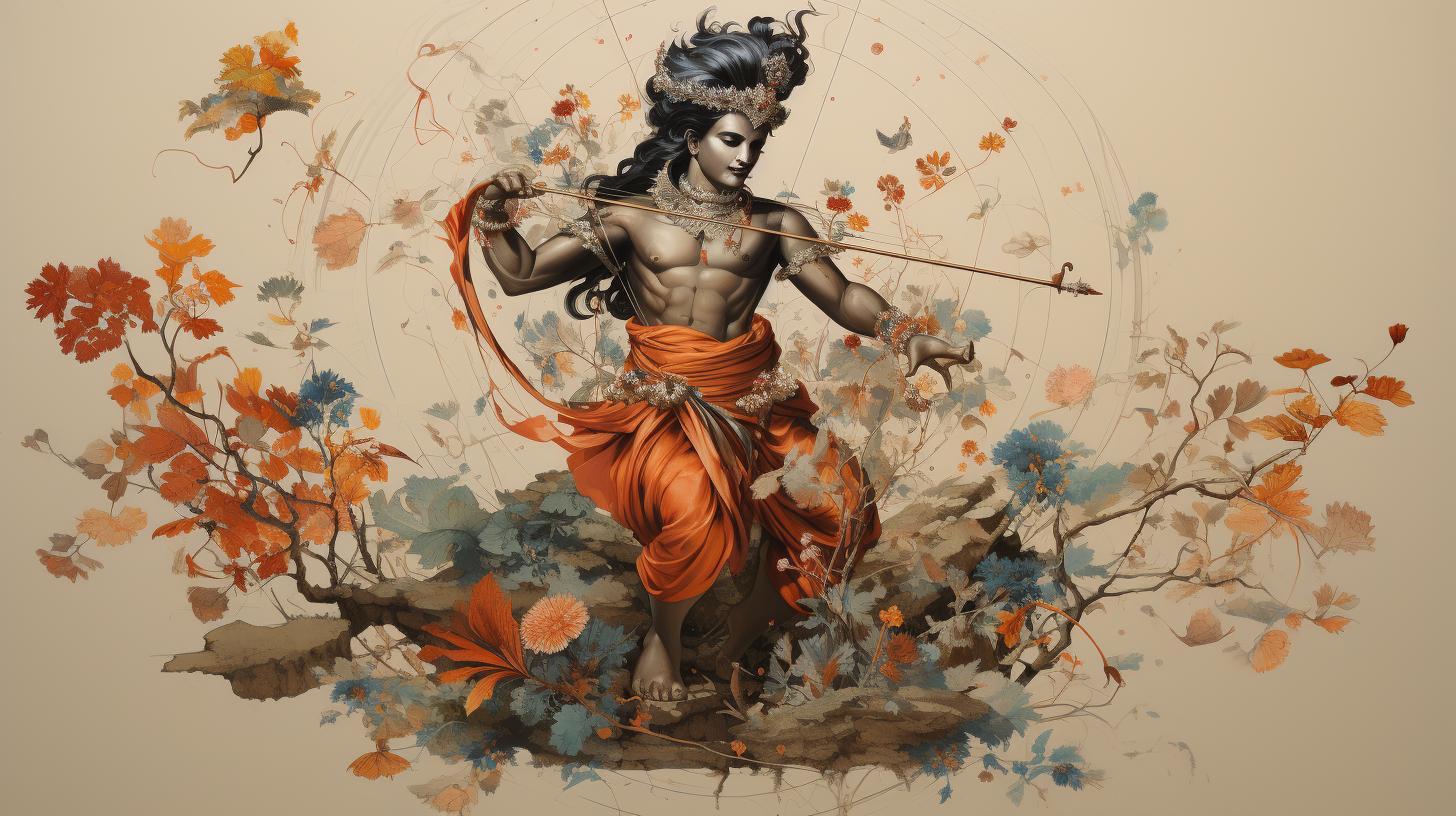Indian Gods and Goddesses: Exploring the Divine Diversity of Hinduism
Indian gods and goddesses play a significant role in Hinduism, a diverse and ancient religion. With numerous deities such as Brahma, Vishnu, Shiva, Saraswati, Lakshmi, Parvati, Ganesha, Krishna, Hanuman, Indra, and Kali, Hinduism embraces a vast pantheon.
This article provides an overview of these divine beings, their characteristics, and the myths surrounding them. We explore their influence on Indian art, culture, festivals, and sacred texts. Additionally, we delve into fundamental concepts like Brahman, reincarnation, karma, and dharma within the philosophical framework of Hinduism.
Understanding Hinduism: Beliefs and Practices
When delving into the rich tapestry of Hinduism, it is crucial to grasp the fundamental beliefs and practices that define this ancient religion.
The Concept of Deities in Hinduism
Central to Hinduism is the concept of deities, with a diverse pantheon that reflects the multifaceted nature of the religion. Hindus believe in the existence of numerous gods and goddesses who represent different aspects of the divine.
List of Indian Gods and Goddesses
Overview of the Hindu Pantheon
The Hindu pantheon encompasses a vast array of deities, each associated with unique qualities and functions. Brahma, Vishnu, and Shiva form the Trimurti – a trinity that represents the creator, preserver, and destroyer aspects of the divine.
Additionally, the Tridevi – Saraswati, Lakshmi, and Parvati – are revered as goddesses embodying wisdom, wealth, and power.
The Trimurti: Brahma, Vishnu, and Shiva
Brahma is the creator of the universe, Vishnu is the preserver, and Shiva is the destroyer and regenerator. Together, they form the Trimurti, symbolizing the cycle of creation, preservation, and dissolution.
The Tridevi: Saraswati, Lakshmi, and Parvati
Saraswati is revered as the goddess of knowledge and the arts, Lakshmi as the goddess of wealth and prosperity, and Parvati as the mother goddess associated with power and fertility.
Understanding these key deities is essential to grasp the intricate tapestry of Hinduism and the diverse roles they play within the religion.
Exploring Popular Indian Gods and Goddesses
The realm of Indian gods and goddesses is vast and captivating. Let’s delve into the fascinating world of these divine beings, each with their own unique characteristics, stories, and significance in Hindu mythology.
Vishnu and His Avatars
Vishnu, the preserver and protector of the universe, is one of the most revered gods in Hinduism. He is believed to have taken various avatars or incarnations to restore cosmic order and righteousness.
From the mighty warrior deity Lord Rama to the divine lover Krishna, each avatar carries a specific purpose and message.
Shiva: The Destroyer and Restorer
Shiva, the powerful and enigmatic god, represents the cyclical nature of creation and destruction. He is both the destroyer of evil and the restorer of balance. With his third eye, he can unleash destruction, while his benevolent side brings transformation and spiritual enlightenment to his devotees.
Lakshmi: The Goddess of Wealth and Prosperity
Lakshmi, the goddess of wealth and prosperity, is worshipped for her blessings of material and spiritual abundance. She is portrayed as a radiant deity, showering her devotees with good fortune, success, and fortune.
Lakshmi plays a significant role in festivals such as Diwali, where her blessings are sought for a prosperous future.
Parvati and Her Divine Forms
Parvati, the divine mother goddess, embodies various forms and aspects. As the gentle and nurturing consort of Shiva, she is known as Parvati. Her fierce form as Durga represents her warrior aspect, while as Kali, she symbolizes destruction of evil forces.
Parvati is revered for her power, grace, and devotion.
Saraswati: The Divine Muse of Knowledge and Arts
Saraswati is the goddess of knowledge, wisdom, and the arts. She is portrayed as a serene deity holding a Veena, a musical instrument, and scriptures. Devotees seek her blessings for creative inspiration, learning, and intellectual pursuits.
Saraswati is especially revered during Saraswati Puja and Vasant Panchami.
Ganesha: The Remover of Obstacles
Ganesha, the elephant-headed god, is widely worshipped as the remover of obstacles and the god of new beginnings. His iconic form and playful nature evoke joy and positivity. People seek his blessings before starting any new venture or endeavor, believing that he clears the path and bestows success.
Krishna: The Supreme Personality of Godhead
Krishna, a central figure in Hindu mythology, is revered as the supreme personality of Godhead. His teachings and exploits are described in the sacred text Bhagavad Gita. Krishna‘s divine love, playful nature, and wisdom continue to inspire devotion and admiration across generations.
Hanuman: The Faithful Servant of Lord Rama
Hanuman, the monkey god, is known for his unwavering devotion to Lord Rama. His incredible strength, loyalty, and bravery make him a beloved deity. Hanuman is revered as a symbol of determination, courage, and selfless service.
Kali: The Fierce Mother Goddess
Kali, the fierce and powerful mother goddess, is both revered and feared. She represents time, destruction, and transformation. Kali is depicted as a fierce warrior goddess, often depicted with a bloodied tongue and multiple arms.
Devotees worship her for protection, liberation, and overcoming darkness within oneself.
Indra: The King of Gods and Lord of Lightning
Indra, the king of gods and lord of lightning, is a prominent figure in Hindu mythology. He is associated with thunderstorms, rain, and fertility. Indra protects the world from evil forces and bestows prosperity.
His stories and feats are celebrated in festivals like Indra Puja and Indra Jatra.
Myths, Legends, and Stories of Indian Gods and Goddesses
Delve into the fascinating world of Indian gods and goddesses through a series of captivating myths, legends, and stories. This rich oral tradition has been passed down through generations, enchanting believers and offering profound insights into the divine realms.
Epic Tales: Ramayana and Mahabharata
- The Ramayana narrates the adventures of Prince Rama as he embarks on a journey to rescue his beloved wife, Sita, from the clutches of the demon king Ravana. It explores themes of righteousness, loyalty, and devotion.
- The Mahabharata, an epic of monumental proportions, depicts the colossal battle between two families, the Pandavas and the Kauravas.It delves into complex moral dilemmas, the nature of duty, and the interplay of divine intervention.
The Bhagavad Gita: Divine Teachings of Lord Krishna
Within the vast Mahabharata, the timeless and philosophical Bhagavad Gita emerges as a sacred discourse. Lord Krishna imparts profound wisdom and guidance to the troubled warrior Arjuna, revealing deeper truths about life, duty, and the path to liberation.
Sacred Texts and Puranas
Indian mythology is rooted in a collection of ancient texts known as the Puranas. These scriptures contain a wealth of stories, genealogies of gods and goddesses, and descriptions of cosmology. They offer valuable insights into the origins and symbolism associated with various deities.
Festivals and Celebrations in Honor of Deities
The vibrant tapestry of Indian culture is interwoven with countless festivals and celebrations dedicated to gods and goddesses. From Diwali, the Festival of Lights, honoring the victory of light over darkness, to Holi, the exuberant celebration of colors associated with Lord Krishna, these festivities showcase devotion and joyous expressions of faith.
Exploring the myths, legends, and stories associated with Indian gods and goddesses allows us to glimpse into the profound spiritual heritage and cultural tapestry of Hinduism.
The Philosophy and Concepts of Hinduism
The philosophy of Hinduism is deeply rooted in the concepts that define its belief system. At the core of Hindu philosophy is the understanding of Brahman, the ultimate reality that encompasses everything in the universe.
Brahman is considered formless, infinite, and eternal, representing the cosmic consciousness that unifies all existence.
Brahman: Ultimate Reality and Cosmic Consciousness
Brahman is the essence of all things, the underlying truth that transcends individual deities and forms. It is the unifying force that connects all living beings, nature, and the universe.
Hindu philosophy teaches that realizing the true nature of Brahman leads to spiritual liberation and enlightenment, breaking the cycle of birth and death.
Reincarnation and Karma: The Cycle of Birth and Death
Hinduism believes in the cyclical nature of life, where the soul is immortal and experiences multiple births and deaths. Reincarnation, or the transmigration of the soul, is influenced by one’s karma, the cumulative effect of actions performed in past lives.
The concept of karma emphasizes that every action has consequences, shaping future experiences and determining the course of one’s life.
Dharma: The Moral and Ethical Principles
Dharma, a foundational concept in Hinduism, represents the moral and ethical duties and responsibilities that individuals must follow. It encompasses one’s societal roles, personal integrity, and adherence to righteousness. Dharma emphasizes living in harmony with oneself, others, and the natural world, promoting social order and spiritual growth.
Yoga and Spirituality in Hinduism
Yoga plays a significant role in Hindu spirituality, offering a path to self-realization and union with the divine. As a holistic approach to physical, mental, and spiritual well-being, yoga encompasses various practices such as asanas (physical postures), pranayama (breathing exercises), meditation, and ethical principles.
It provides a means to control the mind, attain self-awareness, and connect with the higher consciousness within.
Influence of Indian Gods and Goddesses in Art and Culture
The rich cultural heritage of India is greatly influenced by the presence of Indian gods and goddesses, permeating various aspects of art and culture. Their representation in religious statues showcases intricate iconography and profound symbolism.
The divine forms of deities are meticulously crafted in bronze, stone, wood, marble, resin, and fiber, reflecting their unique characteristics and significant attributes.
Iconography and Symbolism in Religious Statues
Religious statues play a crucial role in Hindu worship and convey profound symbolism. Each pose, facial expression, hand gesture, and attribute symbolizes a particular aspect of the deity’s personality or divine power.
The lotus, for instance, represents purity and enlightenment, while the trident signifies Lord Shiva‘s dual role as the destroyer and restorer. The complexity of iconography in these statues allows devotees to connect with the divine presence and gain spiritual enlightenment.
Temples and Places of Worship
Temples serve as sacred spaces where devotees offer their reverence to Indian gods and goddesses. These architectural wonders display exquisite artwork, intricate carvings, and vibrant paintings depicting various myths and legends associated with the deities.
Temples are not only places for religious rituals but also serve as cultural and social hubs, hosting festivals, religious functions, and community gatherings.
Music, Dance, and Literature Inspired by Deities
The influence of Indian gods and goddesses extends to the realm of performing arts. Classical music, including devotional songs and hymns, praises the divine attributes of deities. Dance forms like Bharatanatyam and Odissi incorporate specific movements and gestures that narrate mythological stories and express devotion to gods and goddesses.
Literature, in the form of epics, Puranic texts, and sacred scriptures, portrays the triumphs, struggles, and teachings of these divine beings, shaping the cultural identity of India.
Impact of Hinduism on Indian Society and Lifestyle
Hinduism’s profound influence on the Indian society and lifestyle is evident in various aspects. The concepts of dharma (moral duties) and karma (actions and consequences) guide individuals in leading righteous lives.
Hindu festivals, such as Diwali, Navaratri, and Holi, bring communities together in celebration and religious observance. The philosophical teachings of Hinduism emphasize compassion, tolerance, and spiritual growth, shaping the values and ethics of Indian society.

